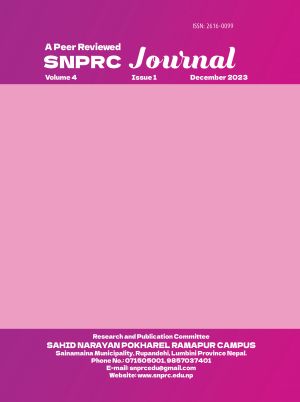English Teachers' Understanding of Cooperative Language Learning and its Opportunities and Challenges in Teaching Writing Skills
DOI:
https://doi.org/10.3126/snprcj.v4i1.61547Keywords:
Classroom instruction, cooperative activities, critical thinking, learner-centred instruction, think-pair-shareAbstract
Cooperative language learning (CLL) is one of the most successful, effective and extensively used learner-centred strategies in teaching writing skills which can help pupils acquire transferable abilities and motivate them to learn the language in pairs and groups in the classroom. The study aimed to explore the English language teachers' understanding of CLL and its opportunities to enhance students' writing skills along with some challenges they encounter in applying it. It was carried out within the theoretical framework of social interdependence theory. To carry out the study, the phenomenological research method was employed. Two English teachers were purposively selected as the participants for the study of two public schools in Rupandehi. The in-depth interview was used as a major technique for collecting information. The study revealed that the English language teachers had a good understanding and positive views toward CLL to enhance the writing skills of the students. The result also indicated that maximized learning opportunities, teacher as a facilitator, addressing mixed ability learners and increased interaction are the opportunities while multi-level and poor educational background of students, lack of regular professional training and collaborative culture, poor class management and less administrative support have been realized as challenges in effective implementation of CLL. The application of CLL can help revolutionize the traditional way of teaching writing skills engaging learners with the assigned writing tasks.




